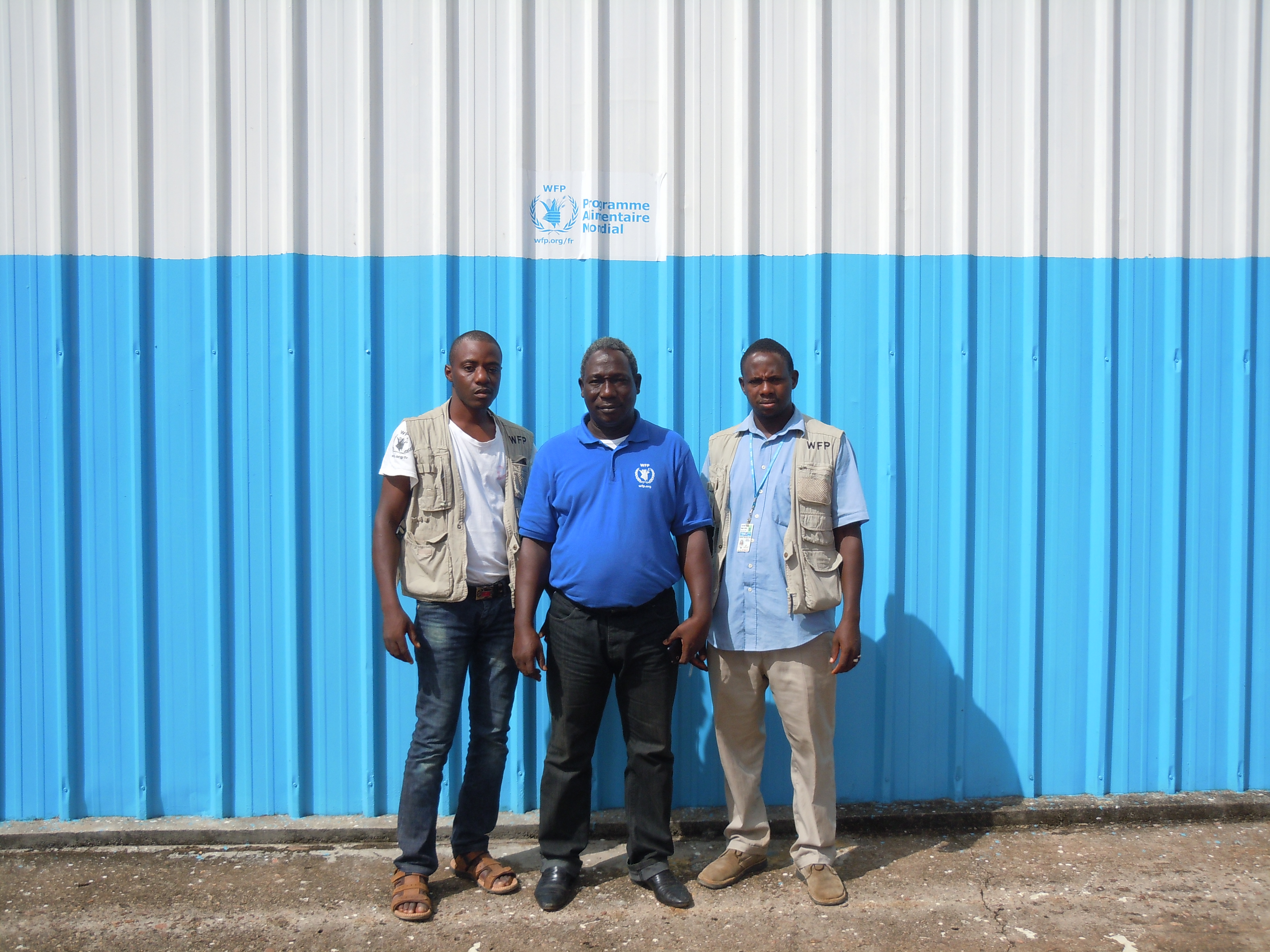
One day in Nzérékoré
Nzérékoré, located in the Guinea forest region, is the second largest city in the country. It is also the city where 182 Ebola cases were reported.
A dirt road leads from the airport to the city centre and is surrounded by lush vegetation. Sometimes along the road you can see people from the local tribes.
“In the past years, Nzérékoré has experienced periods of deep social instability, due to clashes among different ethnic groups living here,” says Alexander Reounodji, the Head of World Food Programme (WFP) Sub Office in Nzérékoré. “Violence has also come from the three bordering countries of Liberia, Sierra Leone and Cote d’Ivoire, which have been affected by terrible civil wars.”
“This all has influenced the attitude of local people, who sometimes are suspicious of foreigners. Working here is not always easy for aid workers. During the peak of Ebola emergency, some of the organizations present in the area have been the targets of violent attacks from local people. This is because some locals believed that Ebola workers were helping to spread the epidemic further.”
Nzérékoré is now Ebola-free, but when the deadly virus was at its peak, the ETC was providing internet connectivity to 14 healthcare facilities across the country, including the 40-bed Ebola Treatment Centre run by independent medical humanitarian organization ALIMA.
In August 2015, one year after the three Ebola affected countries (Guinea, Liberia and Sierra Leone) launched their joint response plan, the number of confirmed cases of Ebola in West Africa has significantly decreased - the number of contacts under observation has halved from 1,600 to 800. As the situation in the region improves, health care facilities are able to close and the demand for internet connectivity at these sites reduces. After twelve long months the Emergency Telecommunications Cluster (ETC) can begin to demobilise equipment. By the end of December 2015, the ETC will have completely phased out services in Liberia, Sierra Leone and Guinea.
Often connectivity provided by the ETC was the only mode of communication available. “We do not have phones, only internet”, says Abdoul Bah, Head of the UNICEF Office. “If internet doesn’t work, we cannot coordinate with our teams based in the villages and we cannot receive information from the UNICEF Office in Conakry. Basically, without Internet we cannot operate.”
Internet connectivity represents a vital instrument to ensure a fast response to the Ebola emergency. Alain Gustav, at the WFP Logistics Base in Nzérékoré, who has been here since November last year, says: “Here we store a large amount of non-food items, especially medical tools, for example the famous yellow Ebola suit and hand sanitizers. Before ETC arrived, the internet connection was very unstable and it was difficult for us to stay in touch with the partners and communicate to the main base in Conakry our needs, plans and requests of support.”

In strong collaboration with its member and partner network – including British Telecom (BT), emergency.lu, Ericsson Response, Global Ebola Response, NetHope, Office for the Coordination of Humanitarian Affairs (OCHA), Plan International, SOS Children’s Villages, United Nations Department of Safety and Security (UNDSS) and United Nations High Commissioner for Refugees (UNHCR) – the ETC in West Africa provided shared internet services to over 3,000 emergency responders at 91 facilities across the three countries. Now as the demobilisation phase begins, comprehensive transition plans for each of the Ebola-affected countries have been defined, to ensure a smooth transition to commercial solutions and avoid any possible service interruption.
While the number of Ebola cases is decreasing, and the operation across the three countries is phasing out, the fight is not over yet. Cases of Ebola are still being confirmed in some areas of Guinea. Humanitarians, healthcare workers and the governments of the affected countries continue to work together to get rid of this virus once and for all.
By Lia Carboni, World Food Programme (WFP), deployed as ETC Information Management Officer, West Africa